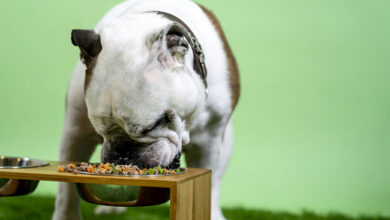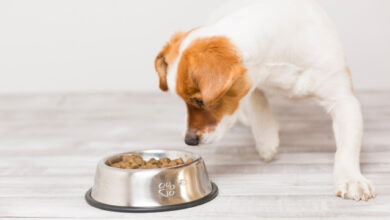
Choosing the right food for your dog is one of the most important decisions you make as a pet owner. With the rise in popularity of grain-free dog food, many pet parents are left wondering if this trend is the best option for their furry friends. Grain-free diets promise benefits such as improved digestion, reduced allergies, and a healthier coat. However, recent studies and veterinary opinions have sparked debates over the necessity and safety of these diets. In this article, we’ll delve into the pros and cons of grain-free dog food, examine the science behind the trend, and help you make an informed decision about what’s best for your canine companion.
What are grains?
Essentially grains are the fruits of grasses that are harvested for massive human consumption. Most frequently seen grains in dog food include corn, soy, wheat, rice, barley, and others.
Still, you probably heard about the benefits of eating whole grains, so are they really bad for dogs? Quinoa is a grain that is described as super food since it contains high amounts of protein, iron, and zinc and barley is packed with fibers.
So no, not all grains are bad and doesn’t need to be avoided. If your dog doesn’t suffer from any form of allergies, and you want to switch him on a different type of food, single whole grain formula can be a great choice.
What are Grains?
Essentially, grains are the fruits of grasses harvested for massive human consumption. The most frequently seen grains in dog food include corn, soy, wheat, rice, barley, and others.
Still, you’ve probably heard about the benefits of eating whole grains, so are they really bad for dogs? Quinoa is a grain described as a superfood since it contains high amounts of protein, iron, and zinc, and barley is packed with fibers.
So no, not all grains are bad and don’t need to be avoided. If your dog doesn’t suffer from any form of allergies and you want to switch him to a different type of food, a single whole grain formula can be a great choice.
Is Grain-Free Good for Allergies?
Just like us, dogs can also suffer from allergies. If eating grain-free food works for people, then it should work for your dog, right? Well, yes, if he is, in fact, allergic to grains, which isn’t a common type of allergen in dogs.
In most cases, canines develop allergies to meat and dairy products, with the most commonly seen culprit being beef. Still, your dog may, in fact, be allergic to grains, but the only way to figure that out for sure is to place him on an elimination diet.
Furthermore, if your dog has diarrhea, a rash, skin irritations, vomits, frequent ear infections, or licks his paws obsessively, he might have allergies. In this case, a trip to the vet is necessary for a proper diagnosis.
Is Grain-Free Carb-Free?
This is one of the most common misconceptions when it comes to grain-free dog food. Plenty of pet parents think that going grain-free will help their dog lose weight, but that is far from true.
Although grain-free foods often contain higher protein levels compared to regular kibble, they also have the same or even higher levels of carbs. The grains from the food are replaced with potatoes, sweet potatoes, tapioca, and other carb-rich vegetables.
So if you are changing your pup’s diet to help him lose weight, you should consider other types of foods that will give better results.
What are the Benefits of Grain-Free Food?
In most cases, grain-free diets are made from high-quality and healthier ingredients, and your pup can benefit from eating it. Furthermore, this type of food also contains higher protein and fat levels.
Since grains are replaced with fruits and vegetables, you don’t have to worry about your pup missing important nutrients. For dogs that have allergies and sensitive stomachs, this type of food should provide relief and keep them healthy.
Moreover, a dog needs to eat smaller quantities of food since it keeps his stomach fuller for longer periods. And less food means smaller, fewer, and more compact stools, which is an important factor for some owners.
Because the quality of ingredients is better, grain-free food will have a positive impact on your dog’s overall health and appearance. His coat will become thicker and shinier, the amount of shedding will be minimal, and he will also lose his repulsive breath.
Some dogs also experience higher energy levels from higher protein and fat content. If you already have an overly active dog, this can be a bad thing. Still, less active dogs will get a nice boost and be willing to become your running buddy.
A dog can also benefit from eating this type of food since it doesn’t contain any of the usual fillers. This can certainly impact the health of your pup and is an important thing to consider.
Does Your Dog Need a Grain-Free Diet?
Most dogs don’t require a grain-free diet, and if your pup is happy and healthy on his current food, then there is no real need for dietary changes. Still, dogs that have grain allergies should eat only grain-free food, and that involves treats as well.
You may have heard that eating grains isn’t natural for dogs; they evolved from wolves that didn’t eat grains. There are also plenty of theories that dogs are carnivores and can’t digest grains.
However, since they were domesticated, dogs have changed and their stomachs are able to digest grains, making them omnivores. So even though some dogs do extremely well on grain-free diets, that doesn’t mean they can’t digest any other type of food.
In the end, you know your pup best, and if you think he can benefit from eating grain-free food, then give it a try. In some cases, a dog may experience diarrhea or stomach problems during the initial period because of high fat and protein levels.
Once your dog is transitioned completely, he shouldn’t experience any other problems. But we advise that prior to making any dietary changes, you consult with your vet and ask for his opinion.
Can Puppies Eat This Type of Food?
Be aware that high levels of protein can damage the kidneys in puppies, so you should be careful about giving your pup grain-free food. Still, some brands make formulas for different life stages, and if your pup really needs a zero-grain diet, there are appropriate choices.
It is advisable to read the label and check the protein content just in case. One more thing worth mentioning is to look for the AAFCO seal of approval.
This will give you the guarantee that the food meets all the guidelines and is complete and balanced for the normal growth and development of a healthy puppy.
All Dogs Are Different
You need to remember that not all dogs have the same nutritional needs. While your neighbor’s dog may thrive on this food, yours may not. So pick a formula that is age, size, and activity-level appropriate to provide your dog with all the right nutrients.
To help your dog love his new diet, introduce it gradually over a period of at least two weeks. Throwing out the old food that your dog loved and replacing it suddenly with the new one can cause complete rejection.
In some cases, a dog won’t like the taste of it and will refuse to eat the grain-free food, so be prepared for some trial and error. Try to get sample food at your local pet store or buy the smallest bag possible while you see how your pup reacts.
Conclusion
As you can see, there is no simple answer to the question, “Is grain-free dog food the way to go?” Of course, for dogs that have grain allergies, this is the right type of food since it will relieve their symptoms and help them live happier, healthier lives.
But for others, it is completely up to you. There is no doubt that zero-grain food can make a positive impact on a dog’s health and overall appearance.
However, it isn’t necessary since most dogs can digest grains just fine. But if you are searching for a healthier diet, consider a single whole grain formula, and remember to always look for a complete and balanced seal.



